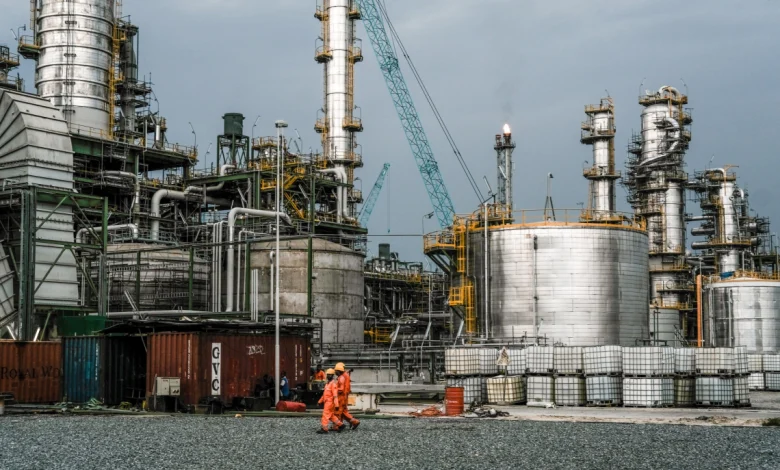
The ongoing dispute between Dangote Refinery and the Petroleum and Natural Gas Senior Staff Association of Nigeria (PENGASSAN) has brought the nation’s oil and gas sector to a critical juncture. The conflict, sparked by the alleged sacking of the union, has raised concerns about the potential impact on the nation’s economy, workers’ rights, and the industry’s overall stability.
The Human Cost
At the heart of the dispute are the over 800 Nigerian workers who were allegedly sacked for joining PENGASSAN. The union claims that these workers were replaced by over 2,000 Indian workers, sparking concerns about job security, working conditions, and fair labor practices. The PENGASSAN leadership has assured that the union will ensure the workers are recalled, but the situation remains tense.
Economic Implications
The strike action directed by PENGASSAN has the potential to disrupt the entire oil and gas sector, leading to fuel scarcity, transportation disruptions, and economic losses. The nation’s fragile economy can ill afford such instability, and the government must act swiftly to resolve the dispute.
Industry Dynamics
The dispute also highlights the complex dynamics at play in Nigeria’s oil and gas industry. The dominance of Dangote Refinery, with its massive production capacity, raises concerns about market manipulation and the potential for monopolistic practices. The government must ensure that regulatory bodies are empowered to prevent such abuses and promote fair competition.
The Role of Government
The federal government has a critical role to play in resolving the dispute and ensuring the stability of the oil and gas sector. The House of Representatives’ intervention is a welcome development, and the government must work with all parties to find a mutually beneficial solution.
A Way Forward
To resolve the dispute and prevent future conflicts, the government and industry stakeholders must prioritize dialogue, fair labor practices, and competition. This includes:
- Protecting Workers’ Rights: Ensuring that workers are treated fairly and have the right to join unions without fear of reprisal.
- Promoting Competition: Encouraging competition in the industry to prevent monopolistic practices and ensure fair market dynamics.
- Regulatory Oversight: Strengthening regulatory bodies to prevent market abuse and ensure compliance with labor laws and regulations.
By prioritizing these principles, Nigeria can build a more stable and sustainable oil and gas sector that benefits all stakeholders.




